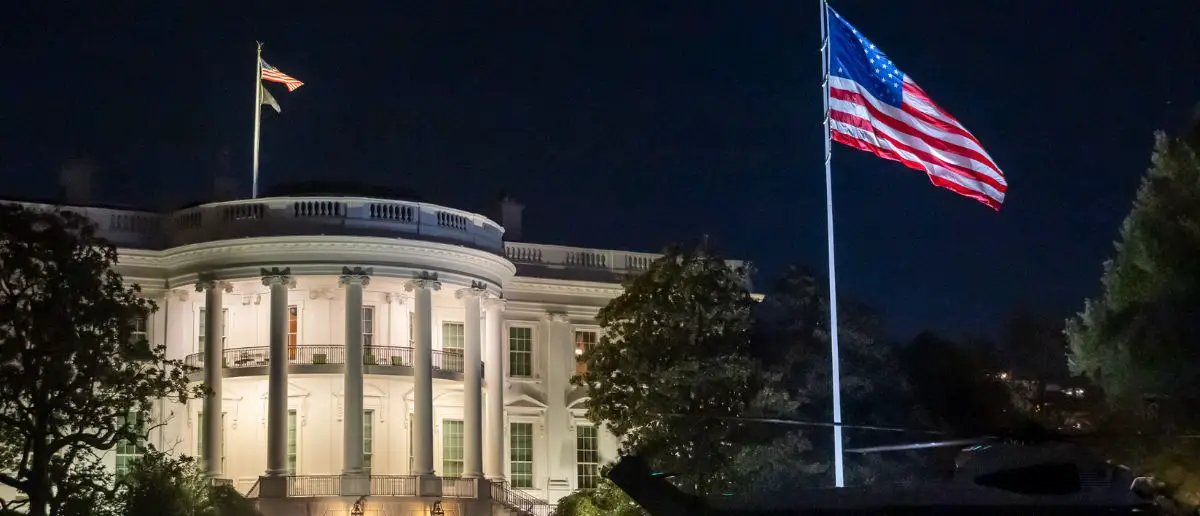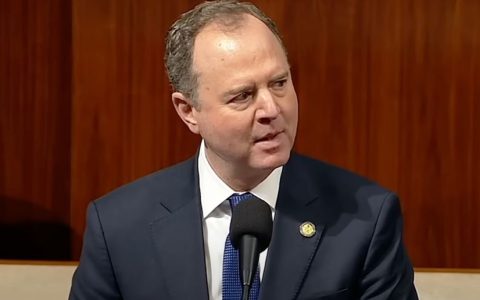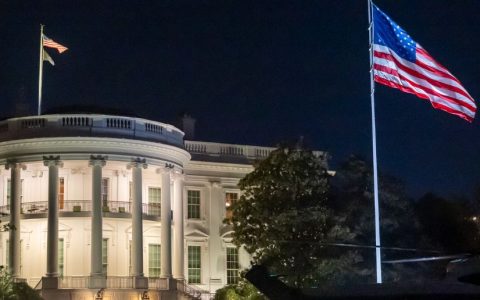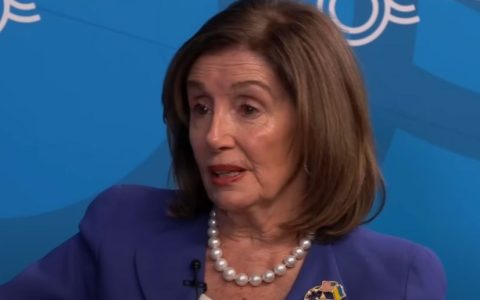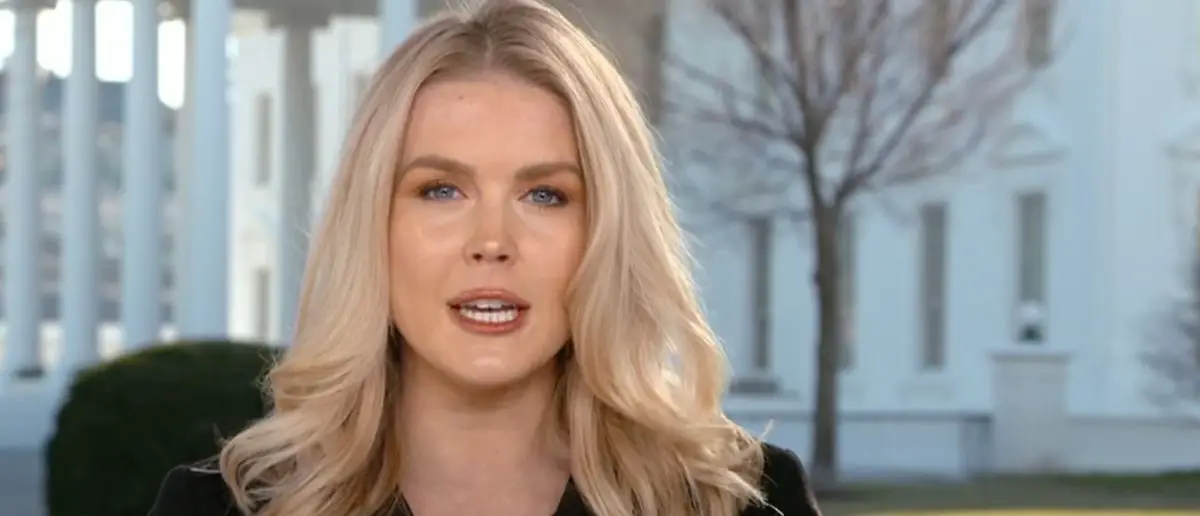
The Trump administration has been busy in its first three months. That’s taken its toll.
And now the White House Press Secretary has just updated the nation on President Trump.
WH Press Sec Says The World Is Knocking On America’s Door Thanks To Trump Tariffs
The global stage is buzzing with a new kind of energy, and it’s all pointing toward Washington, D.C., where President Donald Trump’s economic and trade strategy is commanding attention. On Friday, White House Press Secretary Karoline Leavitt appeared on Fox News’ Hannity and delivered a message that resonates with the America First agenda: the tide has decisively turned in favor of Trump’s vision. Countries across the globe are lining up to strike bilateral trade deals with the United States, eager to engage with an administration that’s rewriting the rules of international commerce.
Leavitt’s appearance on Hannity was a moment to showcase the momentum building behind Trump’s trade policies. Host Sean Hannity noted that more than 75 nations are clamoring to negotiate with the U.S., a testament to the leverage Trump wields. “I’m told that deal number one is close to being finished. Is that right?” Hannity asked, setting the stage for Leavitt to confirm the administration’s progress. The excitement in her response was palpable, as she detailed the flurry of interest from world leaders eager to secure agreements with the United States.
“It is true. We believe that there could be several deals very soon. More than 75 countries have reached out to the administration. More than 15 offers are on the table. And the president’s trade team and the president himself are working very hard to negotiate tailor-made trade deals with every country that has reached out,” Leavitt said. Her words painted a picture of a White House bustling with activity, where Trump’s deal-making prowess is reshaping global trade. She emphasized that no previous president has dared to harness America’s economic power with such resolve, a nod to Trump’s unflinching commitment to prioritizing U.S. interests.
The administration’s approach is already yielding tangible results. On Wednesday, Trump announced a 90-day pause on reciprocal tariffs for all countries except China, which now faces a steep 125% tariff hike. The move sent global markets soaring, a clear signal that investors see strength in Trump’s strategy. By drawing a hard line with China while offering others a window to negotiate, Trump is demonstrating a blend of toughness and pragmatism that’s forcing the world to take notice. This isn’t just about tariffs—it’s about reasserting America’s dominance in a global economy that’s long taken advantage of its generosity.
Leavitt didn’t shy away from celebrating the economic victories piling up under Trump’s leadership. She spoke of America’s unmatched economic, military, and national security strength, which together form the backbone of Trump’s negotiating power. During her Fox News appearance, she recounted a telling exchange with a CNN reporter who suggested that Trump’s actions have put the entire world “on notice.” Leavitt seized the opportunity to drive home the administration’s message: the days of the U.S. being exploited are over.
“That’s exactly the point. The world is on notice. The world is finally realizing that under this president, the United States of America is not going to be taken advantage of. This is a president who is going to put our country, our people and our needs first,” Leavitt said. Her response was a rallying cry for Americans tired of seeing their nation play second fiddle in global affairs. The phones at the White House, she added, are “ringing off the hook” as foreign leaders scramble to secure deals, recognizing that America’s economic and strategic influence is indispensable.
The international community’s newfound urgency stems from a stark reality: the United States holds the keys to global stability. Leavitt pointed out that other nations “are indebted to us for the stability that we have provided in their own countries for decades.” For too long, America’s contributions—whether through its market access, military presence, or diplomatic leadership—have been undervalued. Trump’s approach flips this dynamic, demanding reciprocity and respect from trading partners. It’s a stance that resonates deeply with Americans who want their country to reclaim its rightful place at the head of the table.
“And the president has made that very clear that the American people are finally going to have the front seat at the table, and thank God for it,” Leavitt said. Her words encapsulate the heart of Trump’s trade philosophy: putting Americans first. By imposing a 10% baseline tariff on roughly 60 countries and signaling tougher measures for those like China that maintain unfair trade barriers, Trump is sending a message that the U.S. will no longer subsidize the prosperity of others at its own expense. It’s a policy rooted in fairness, designed to level the playing field for American workers and businesses.
The ripple effects of Trump’s strategy are already being felt. The global market rally following his tariff announcement shows that investors are betting on a stronger, more assertive America. Meanwhile, the flood of trade offers from over 75 countries suggests that world leaders see the writing on the wall: aligning with Trump’s America is a necessity, not a choice. From Europe to Asia, nations are rethinking their approach, eager to avoid the consequences of falling out of favor with the world’s most powerful economy.
Critics may argue that Trump’s tactics risk alienating allies, but Leavitt’s confident demeanor on Hannity told a different story. The administration sees these negotiations as a chance to forge stronger, more equitable partnerships—ones that benefit American workers, farmers, and manufacturers. By holding firm on tariffs and demanding better terms, Trump is dismantling the outdated trade frameworks that have eroded America’s industrial base for decades. It’s a bold move, but one that’s clearly striking a chord with a world desperate for American leadership.
As Trump’s second term gains steam, the stage is set for a new era of American prosperity. The deals in the pipeline, Leavitt hinted, could reshape global trade for generations, cementing Trump’s legacy as the president who brought the world to America’s doorstep.
The Case for Tariffs: A Strategic Tool for American Prosperity
Proponents of tariffs argue they are a vital instrument for leveling the playing field in global trade, particularly for a nation like the United States, which has long borne the cost of unfair practices by other countries. Tariffs can protect domestic industries—such as manufacturing, steel, and agriculture—from being undercut by heavily subsidized foreign competitors or those exploiting lax labor and environmental standards.
By imposing tariffs, the U.S. can incentivize fairer trade practices, encouraging nations to negotiate deals that prioritize mutual benefit over exploitation. This approach not only safeguards American jobs but also strengthens industries critical to national security, reducing reliance on adversaries for essential goods like semiconductors or pharmaceuticals.
Beyond economic protection, tariffs serve as a powerful bargaining chip in international negotiations. They signal to trading partners that the U.S. is serious about addressing trade imbalances and won’t tolerate one-sided agreements. When strategically applied, tariffs can pressure other nations to lower their own barriers, opening markets for American exports and fostering more equitable economic relationships. For instance, targeted tariffs on countries with persistent trade surpluses can prompt them to buy more U.S. goods, boosting American farmers, manufacturers, and small businesses. This leverage is seen as essential in a world where many nations have grown accustomed to taking advantage of America’s open markets without reciprocating.
Critics may point to the risk of higher consumer prices, but tariff advocates counter that the long-term gains outweigh short-term costs. By revitalizing domestic industries, tariffs can create high-paying jobs and rebuild communities hollowed out by decades of offshoring. Moreover, the revenue generated from tariffs can be reinvested into infrastructure, innovation, or tax relief, further fueling economic growth. Supporters argue that a nation as economically powerful as the U.S. can absorb temporary price increases while reaping the benefits of a stronger, more self-reliant economy—an outcome that aligns with putting American workers and businesses first.
Stay tuned to the DC Daily Journal.


